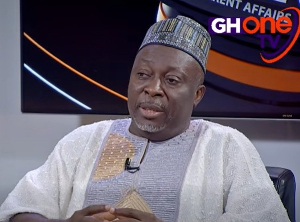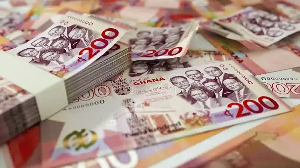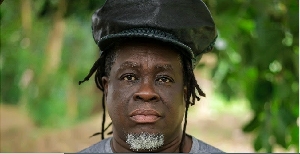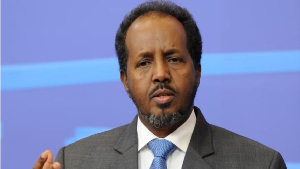When I land in Accra this week, accompanied by a delegation of UK-based financial and professional services firms, there will be one word that I will associate with the country of Ghana: Opportunity.
To the City of London firms authorities who will be on the plane with me, to the thousands more found in the UK capital and across the rest of the country, the economic potential of Ghana is immense. What are these selling points?
High up on the list is the strong economic growth trajectory (averaging over six per cent GDP), a favourable business environment, a youthful, ambitious workforce, a legal system based on English Law and an awareness from the government that diversification of their economy is going to be essential in the years to come.
It is on this last point where the City and the UK want to offer their expertise and experience and make sure that we are Ghana’s natural economic partner of choice.
Strong political and historical ties
The good thing from our point of view is that we start from a strong footing. Diplomatically, we already have excellent links and the benefit of strong political and historical ties, something I will be highlighting when meeting President John Mahama.
Economically, the situation is also similar. Ghana was the UK’s sixth largest export market in sub-Saharan Africa in 2013 with bilateral trade worth over £1.3 billion.
Some of our biggest financial and professional services firms have a considerable presence in the country – Prudential the insurer, Barclays and Standard Chartered banks, legal services firms like DLA Piper and Norton Rose and PWC, the accountancy firm, to name a few.
While this footprint is strong, the reality is that Ghana has areas of its economy where it can improve and we stand ready to provide that support. I mentioned earlier that the government is aware of the need to diversify its economy so it is not so exposed to external global shocks and fluctuations, particularly in the exports of gold, cocoa and oil. This is a real plus.
As the country starts to reinvigorate its agriculture and manufacturing sectors and looks towards getting large public infrastructure projects off the ground, the City will be there as Ghana’s partner.
Not just with capability studies but everything in the timelines of these projects from financing to delivery, getting the projects from architect’s blueprints to spades in the ground.
Having spent over 40 years working in the capital markets sector of investment banking in London and overseas, I will also be discussing with government ministers, officials and regulators in the sector ways that the Ghanaian financial sector can grow. This is something that I will be raising in conversations with the Ministers of Finance, Public-Private Partnerships and Power on Friday.
I will also want to discuss capital markets and bonds when meeting Dr Henry Kofi Wampah, Governor of the Bank of Ghana, and I am particularly excited by the thought of adding to the panel discussion hosted by Barclays on the very same subject.
Sophisticated market
While the market is becoming increasingly more sophisticated, there remain many hurdles to overcome – including competition for funds and high interest rates, that present unique challenges. We can advise on all areas of market developments, utilising UK professional services expertise.
I will also be looking forward to visiting Prudential’s training facility at Darquah, seeing first-hand just how innovative companies are helping train their workforce of tomorrow. As Chairman of the globally renowned Chartered Institute for Securities & Investment, I know just how education, training and qualifications (ETQ) are key ingredients of a successful economy.
They can help upskill the domestic workforce, facilitating the development of the financial and professional services industry and equipping the economy with a deep pool of talented, qualified and knowledgeable employees. Greater cooperation in qualification programmes, particularly in the fields of insurance, accountancy and actuary, are something I will be championing this week.
Just as Ghana is a regional hub for other economic opportunities in West African markets, the UK is also the gateway for trade with continental Europe and beyond. As I said earlier, Ghana is a land of opportunity and I will do my utmost to make sure that the UK capitalises on this and strengthens the financial ties between our two nations.
I want all of Ghana, when they do business overseas, tie up commercial partnership and export abroad, to be thinking of the UK as the first port of call. That is the yardstick as to how successful my visit this week will be judged and whether or not we seize this opportunity that the economy of Ghana now presents.
The writer is the Lord Mayor of the City of London
Opinions of Friday, 2 October 2015
Columnist: Lord Mayor Alan Yarrow















